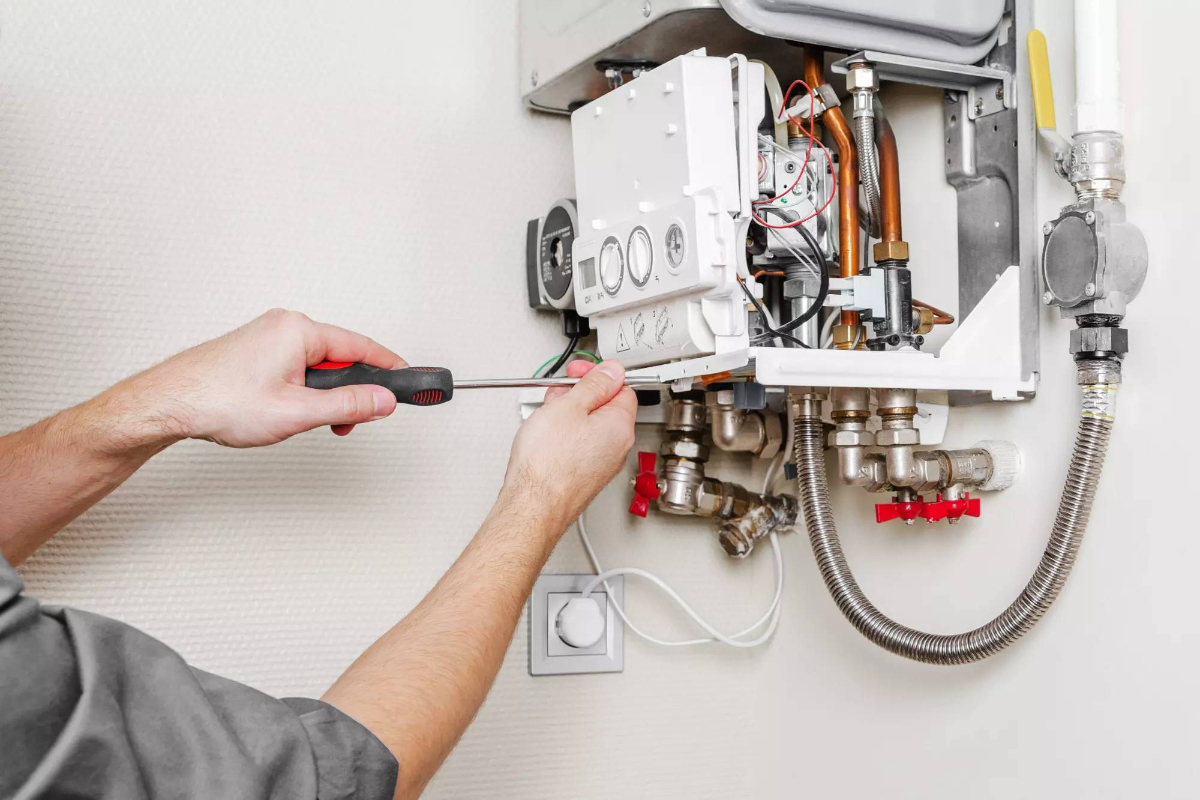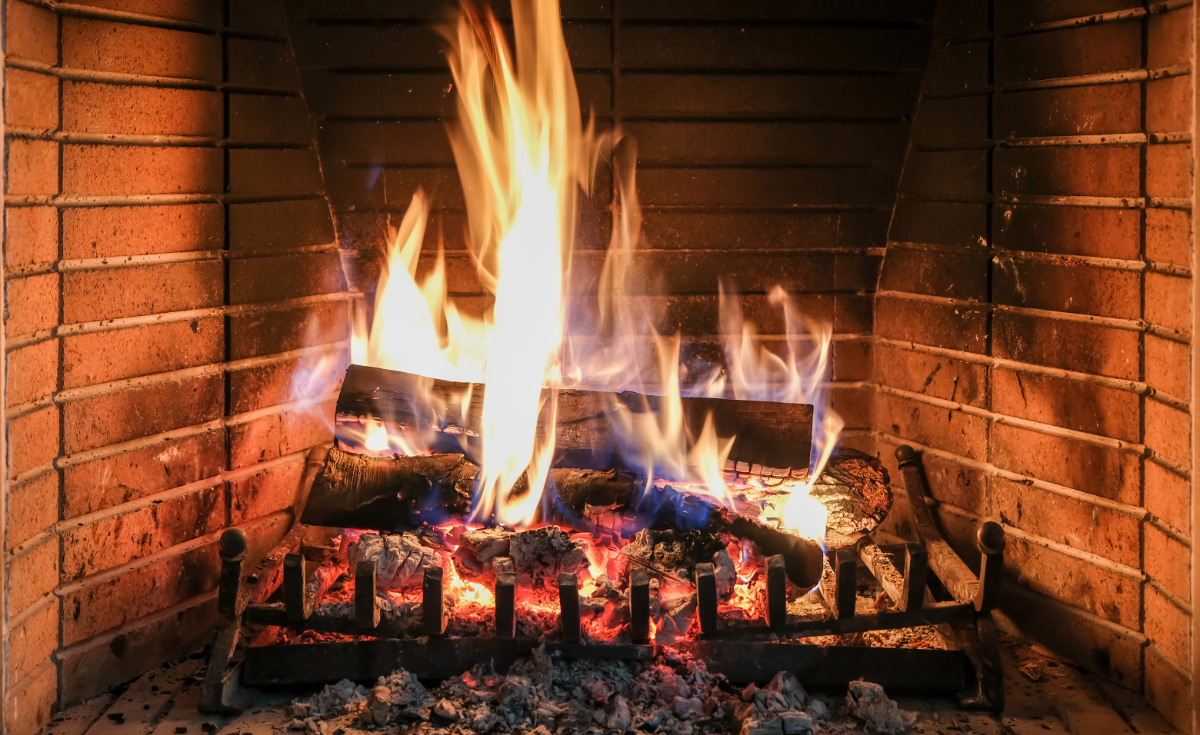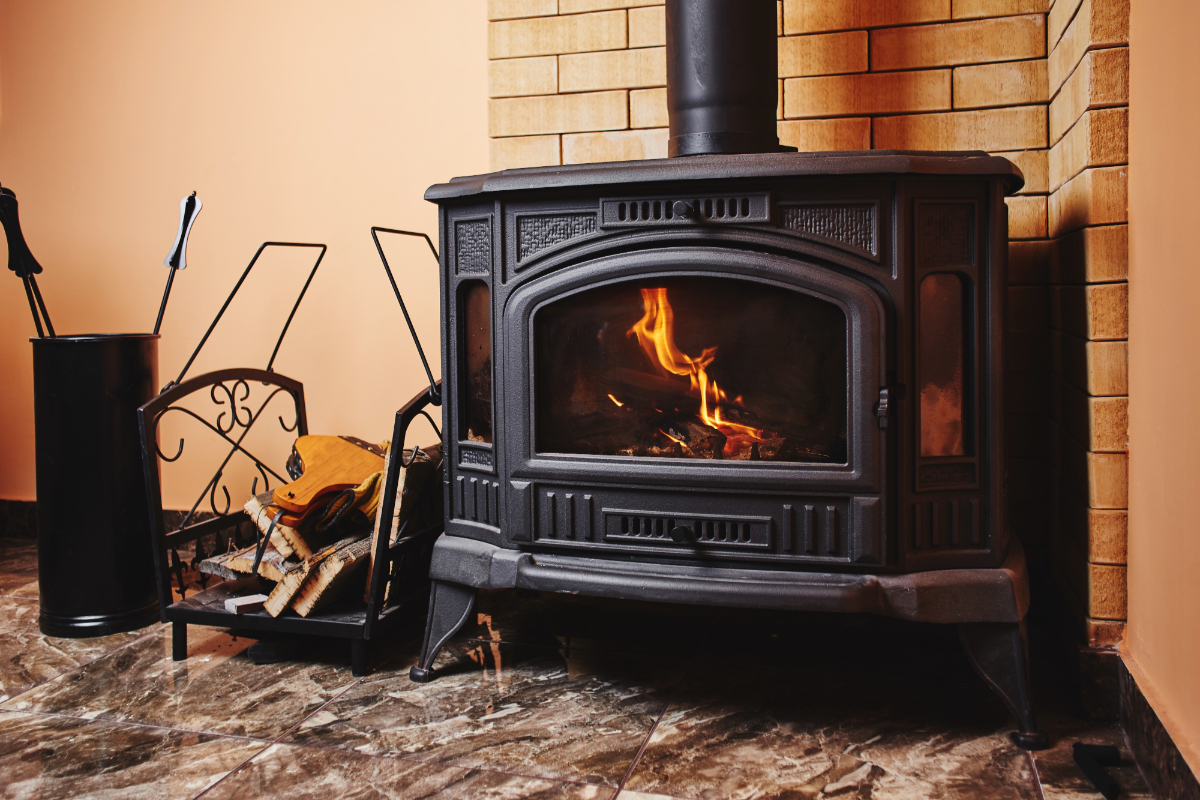Have you been considering the benefits of a wood burner? We look at the many reasons to get a wood burner. Find out if you require solid fuel stove installations in Cornwall.
The Benefits Of Wood Burners
A wood burner can generate a lot of heat, which allows the area in which it is located to heat up rapidly and efficiently. There are several sizes with different heat outputs available; the best option is to pick a model that fits the size of your house or the area it will be utilised in. A wood-burning stove creates a cosy ambience when it's gloomy outside thanks to its adequate warmth and the aesthetic effect of the flashing flames. Your home will feel cosier and more welcoming with a wood fire. Since it doesn't require gas, oil, or electricity to run, a wood burner is dependable.
A wood-burning stove may therefore at least keep your home warm even during a power outage when other heating sources may not function. They have a very straightforward, robust design with a small number of moving components that might break; if they are used properly, they will function effectively with minimum upkeep for decades.
Even though a wood burner is dependable and does not require electricity, oil, or gas to run, it can keep your home warm even if other heating sources are inoperable due to a power outage. When used properly, wood burners have a very basic, solid structure with few moving elements that may break and can last for many years with little upkeep.
Even though wood releases carbon dioxide when it is burned, the quantity released is equivalent to the amount sequestered by a replacement tree that absorbs carbon dioxide and respires oxygen, making wood a carbon-neutral fuel if it is regrown responsibly. Trees may be utilised for natural services including flood control, soil stabilisation, riparian management, and habitat for other flora and animals since wood is renewable, unlike fossil fuels.
It can also be a good approach to protect the environment to source wood fuel from trash, such as offcuts or unwanted pieces from timber merchants since it prevents additional trees from being chopped down and waste wood from being dumped in landfills. Wood is typically acquired locally, most often within a 100 km radius; fossil fuels, on the other hand, may travel thousands of kilometres from their point of production.
Reasons To Get A Wood Burner:
01
Reduce Your Heating Bill
When you have an effective stove in its place, you don't need to turn up the radiators, and if you spend most of your time there, you may shut off the heating entirely for a few hours each day. You will consequently save energy and money as a consequence.
This also means that you won't need to pay for any costly boiler repairs that may be required if the heating system is overworked; instead, you'll only need to pay for those yearly checkups. Additionally, since gas and electricity costs are predicted to rise this year due to an increase in fuel demand, it's important to plan.
02
Enjoy The Art Of Fire Building
Fires were everyone's primary source of energy for a very long time. What was once a straightforward and important component of people's everyday lives is now viewed as taking too much time and having little significance in the modern family.
Owning and taking care of a log burner is a fulfilling habit if you're the kind of person who loves to take things slowly and enjoy the little things in life. An important and fulfilling experience that you may enjoy with others is choosing your logs, cleaning the wood burner, and piece by piece constructing the fire.
03
Controllable Fuel Supply
Even with gas central heating, a power outage is impossible to forecast or prepare for. However, as long as you have fuel on hand, you will have a backup source of heat and light in case of an emergency.
For older, more remote homes that aren't connected to the energy grid, firewood may be purchased in bulk and stored away during the warmer months until you're ready to use it, giving you control over your supply. You may not have the power supply, but you can still have the power.
04
Alternative To Coal-Fired Electricity
The energy required to harvest wood is significantly less than the energy required to mine deep for fossil fuels like coal, which generates about a third of the electricity in the UK. Wood burners are highly efficient and require less energy to produce the same heat as your radiator. They also have a lower carbon output. Through prudent forest management, new trees are planted to take the place of those that are cut down and absorb CO2.
In order to lessen air pollution, rules are also implemented in built-up regions of the UK. For smoke control regions, DEFRA-certified equipment and a list of permitted fuels are required to guarantee air quality is maintained. High-quality Ecodesign stoves and the "Ready to Burn" programme also significantly reduce the amount of emissions produced.
05
Flexible Fuel Options
With the ability to switch between briquettes, wood pellets, and other smokeless fuels, multi-fuel stoves provide you with greater choice within the home. As long as you buy the right fuel for your appliance, there are numerous options available to guarantee you can discover the fuel that works best for you.
Using Eco logs has long been a practical option that started in the North of England and made use of wood waste that would otherwise be disposed of.

Reduced Heating Bill
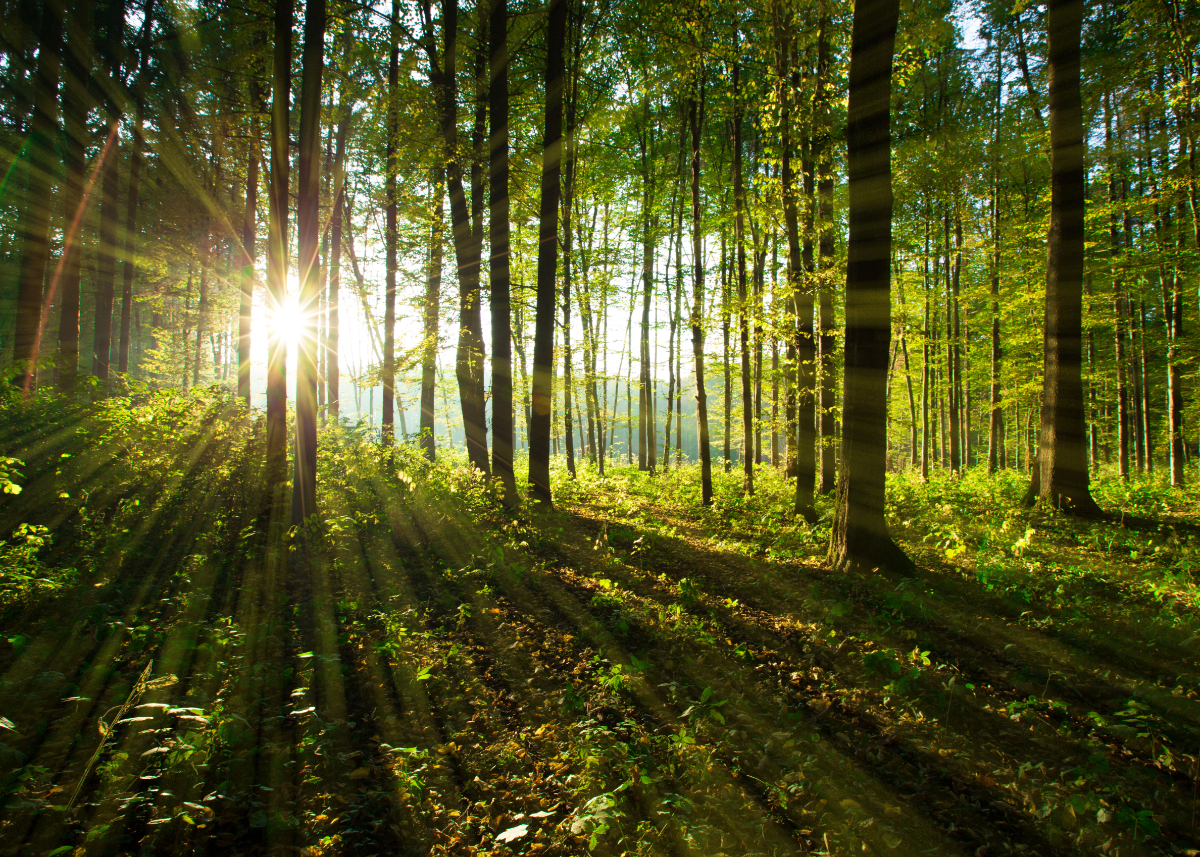
Eco-Friendly
06
New Stoves Are Much More Eco-Friendly
Of course, wood-burning stoves are completely environmentally beneficial, and while most contemporary wood burners are greener than their antiquated predecessors, Ecodesign Ready stoves are even more eco-friendly.
Stove technology and materials have advanced significantly, and they are no longer nearly as polluting as they previously were, and even less so than an open fire.
07
Avoid Energy Providers
When you have an effective stove in its place, you don't need to turn up the radiators, and if you spend most of your time there, you may shut off the heating entirely for a few hours each day. You will consequently save energy and money as a consequence.
This also means that you won't need to pay for any costly boiler repairs that may be required if the heating system is overworked; instead, you'll only need to pay for those yearly checkups. Additionally, since gas and electricity costs are predicted to rise this year due to an increase in fuel demand, it's important to plan.
08
Wood Burning Stoves Use Renewable Fuel
Many people focus on the drawbacks of using wood as fuel and the pollutants it causes, but there are other factors at play as well. As a renewable resource, wood is undoubtedly better for the environment than gas or electricity.
Research shows that burning wood emits 0.008 kg of CO2 per kWh, as opposed to 0.198 kg for gas and 0.517 kg for electricity.
09
High-Efficiency Levels
Wood stoves are getting more efficient, which means that more heat is utilised to heat your home rather than being ejected up the chimney, making them more environmentally friendly.
A new stove would be a sensible choice if you want to make sure you're receiving more heat in your house. A more efficient stove is better for the environment as well as your budget because you'll need less fuel. Older stoves will also have lower efficiency ratings.
10
Wood Burning Stoves Are Good For The Environment
It's beneficial for the ecology to burn wood. With logs being a low-carbon fuel source, using wood-burning stoves is a fantastic approach to reducing carbon emissions. Additionally, burning wood lowers your heating costs, particularly if you heat your home with more expensive oil or LPG.
There are further advantages for the economy and environment as well since the demand for wood fuel from managed woods increases the need for qualified workers in the field and may encourage landowners to manage their wood. Managed woods offer wildlife a beneficial, rich environment as well.
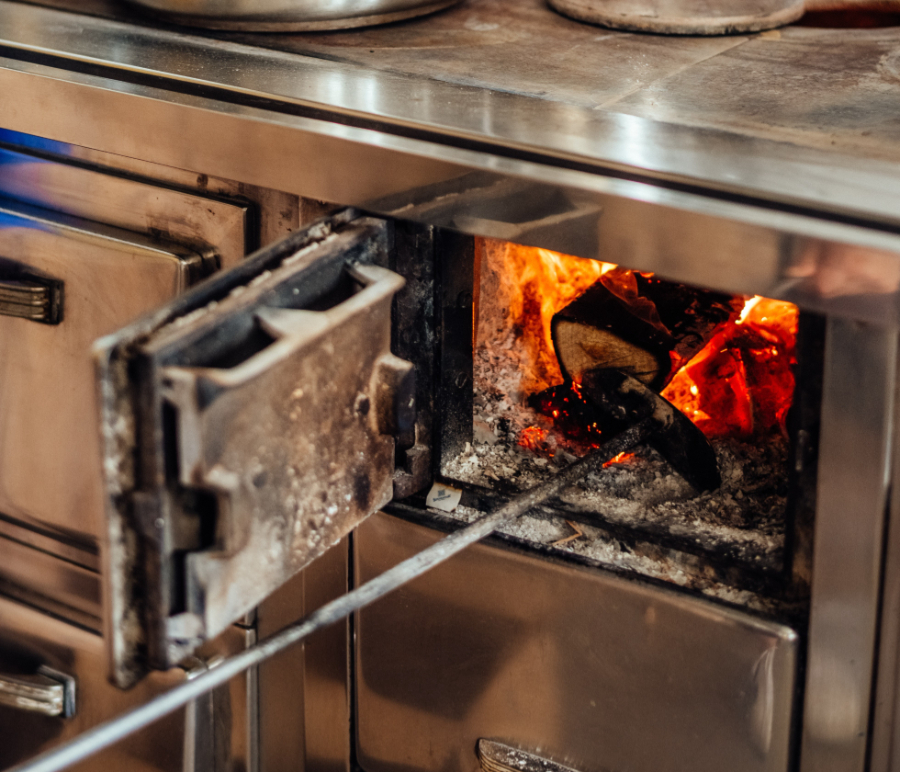
How Much Do Wood Burning Stoves Cost To Install?
The price of a wood-burning stove varies depending on the model and size you select, as well as the specific installation requirements of your home.
In the face of escalating fuel prices, a wood burner may provide substantial savings; the basic price of a wood stove ranges from £400 to £1,500, and the average cost of a wood burner with installation is roughly £2,000.
Of course, there are less expensive solutions, although a wall-mounted integrated stove costs more.
If you would like to learn more about your local wood burner installation specialists in Cornwall, please call us today on 01736 732285 and we will be happy to deal with your queries. Find out more about wood burner installations in Cornwall.



